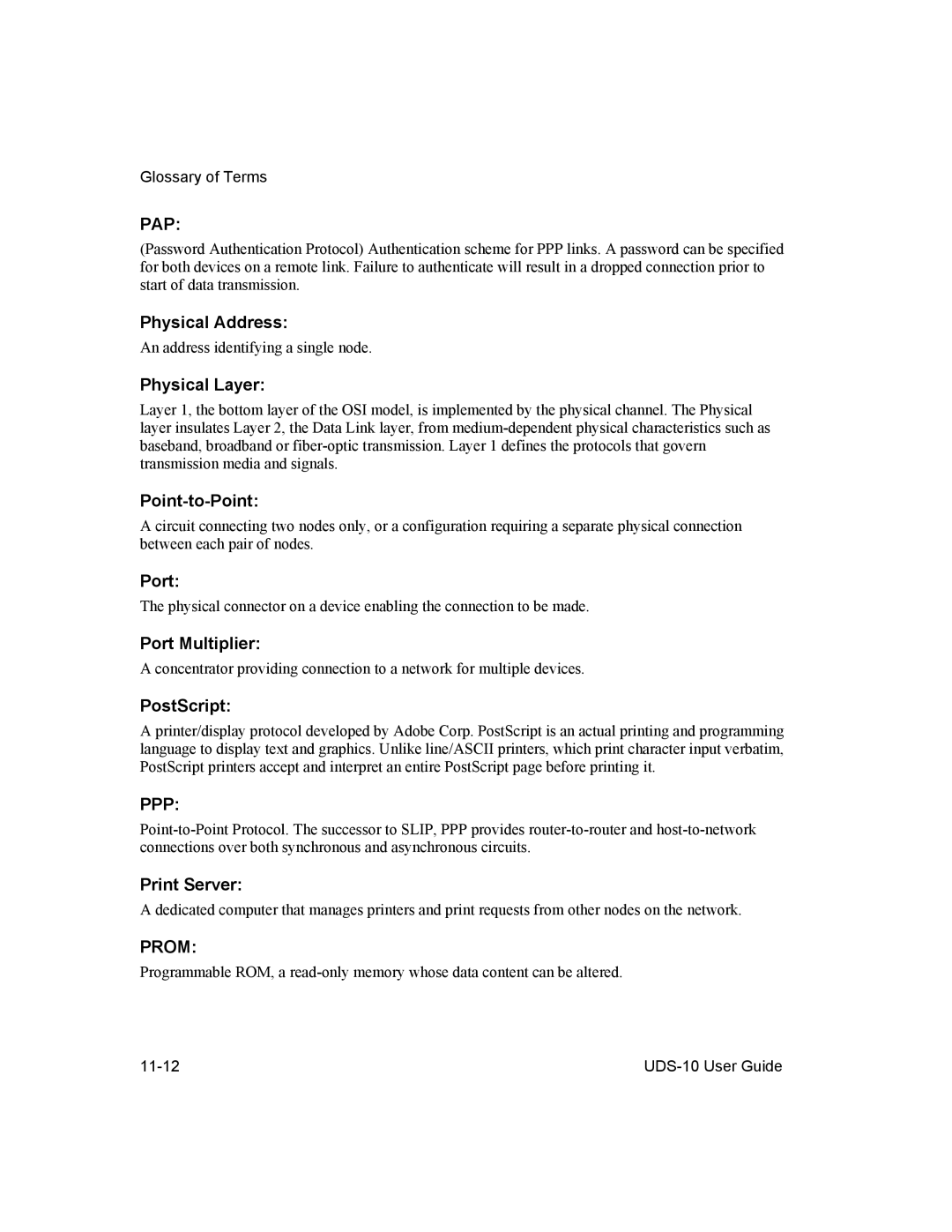Glossary of Terms
PAP:
(Password Authentication Protocol) Authentication scheme for PPP links. A password can be specified for both devices on a remote link. Failure to authenticate will result in a dropped connection prior to start of data transmission.
Physical Address:
An address identifying a single node.
Physical Layer:
Layer 1, the bottom layer of the OSI model, is implemented by the physical channel. The Physical layer insulates Layer 2, the Data Link layer, from
Point-to-Point:
A circuit connecting two nodes only, or a configuration requiring a separate physical connection between each pair of nodes.
Port:
The physical connector on a device enabling the connection to be made.
Port Multiplier:
A concentrator providing connection to a network for multiple devices.
PostScript:
A printer/display protocol developed by Adobe Corp. PostScript is an actual printing and programming language to display text and graphics. Unlike line/ASCII printers, which print character input verbatim, PostScript printers accept and interpret an entire PostScript page before printing it.
PPP:
Print Server:
A dedicated computer that manages printers and print requests from other nodes on the network.
PROM:
Programmable ROM, a
